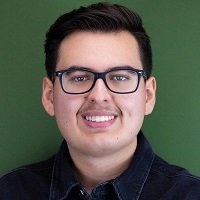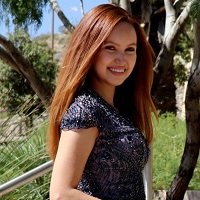
The NBCU Academy Embed Program is a 24-month assignment where participants work in a newsroom alongside a leading editor. Each embed reports within a specific division of the NBCU News Group where they dedicate their work to a beat that aligns with their strengths and future goals: CNBC en Español/Telemundo, NBC BLK, NBC OUT, NBC Latino, NBC Asian America and CNBC Make It.
Each embed is either a recent graduate of an NBCU Academy partner institution, or they are an entry-level journalist affiliated with journalism diversity organizations. They have two years to work full-time and train with our news teams.
The Fall 2021 cohort shares their perspectives on the program so far, and valuable advice for young journalists.
The NBCU Academy Embeds






What do you wish you knew before you became a working journalist?
- “Become an expert in a certain subject. Really learn the ins and outs of it.” – Edwin Flores, NBC Latino
- “Be a great writer first. Whether it’s tutoring someone in writing a paper, starting a blog, or whatever you can do to boost your writing skills, that’s step one.” – Ashton Jackson, CNBC Make It
- “I wish I would have known that I don’t have a set journey and I just need to be a little bit more patient and not compare my journey to others, especially my peers or my colleagues.” – Jay Valle, NBC OUT
What did you learn in the field that you didn’t learn in the classroom?
- “People’s critiques of your work can be very brutal, but I think it’s definitely made me a stronger journalist and more resilient overall.” – Ashton Jackson, CNBC Make It
- “A source is a person at the end of the day. A level of trust needs to be established so they’ll open up to you. Especially in this climate, where people have this idea of reporters being fake or fake news, it’s important to establish trust.” – Claretta Bellamy, NBC BLK
- “Even if you’re talking to a CEO of a huge company, just remember that you are a professional journalist, and they’re not going to see you as a child. Make sure that you really show that and get that interview practice. You learn [interviewing] in abstract in college, but it’s not something that you really learn until you’re put in front of someone.” – Brahmjot Kaur, NBC Asian America
- “I didn’t really have the opportunity to be in a newsroom because of the pandemic. Now seeing how all the other departments work with each other, it’s very inspiring, the amount of communication that goes on to produce content, make sure everything is up to standard.” – Edwin Flores, NBC Latino
What advice would you give students looking to land their first job or an internship?
- “Get as many internships as possible, that is the best way to explore and learn. That really helps you have an idea of the way things work and then you’re able to dominate.” –Jacqueline Mata, CNBC en Español
- “Students should harness every skill possible as a journalist in all mediums: writing, audio, video, even social media just to become savvy, especially with the way news is evolving.” – Jay Valle, NBC OUT
- “Be persistent. Coming from a first-generation Latino [family], you do get a lot of impostor syndrome, a lot of self-doubts. Build a network of not just friends and professors, but people who are going to support you once you enter [journalism]. A lot of people get discouraged because they compare themselves to their peers or colleagues. But build that network and just take it day by day.” – Edwin Flores, NBC Latino
- “Stay true to yourself. If you ever feel like you have to make yourself more palatable or alter your work or change your creative thought process, then maybe that’s not an environment that you need to be in.” – Ashton Jackson, CNBC Make It
How are you innovating coverage?
- “I am bringing that fresh, Generation Z perspective. It’s proven to increase Instagram account engagement significantly and just creating a different kind of relationship with the audience.” – Jay Valle, NBC OUT
- “CNBC en Español gives me the opportunity to do journalism in my first language and inform people like me about our financial issues. We’re not just talking about people who are my age who speak Spanish, but also people who are elderly and rely on local news stations.” – Jacqueline Mata, CNBC en Español
- “I think at my age, we have one foot in millennial culture, and one foot in Gen Z culture. So that’s really been helpful in how to talk to a wide array of people and mesh those two worlds together.” – Brahmjot Kaur, NBC Asian America
How does it feel to be in the NBCU Academy Embed program?
- “I’m very thankful to have this opportunity. I always knew deep down that I wanted to be a journalist. It was just a matter of time before that door opened. So now that I’m here, I’m really excited to see how my early career is going to unfold.” – Claretta Bellamy, NBC BLK
- “Yvette Miley, [SVP of DEI at NBCU News Group], always tells us embeds: ‘The spotlight is always on you. All you have to do is shine.’ For someone like me, who may be from poverty, first-generation college students, people who didn’t have others to guide the way for them, it can be very discouraging when you don’t see people who look like you in a position that you want to be in. That’s something that I battled with growing up and I really had to instill in myself that I’m capable. No matter the circumstances that you’re going through, you can do this. And this program has really been just monumental for setting me up for a great career.” – Ashton Jackson, CNBC Make It



